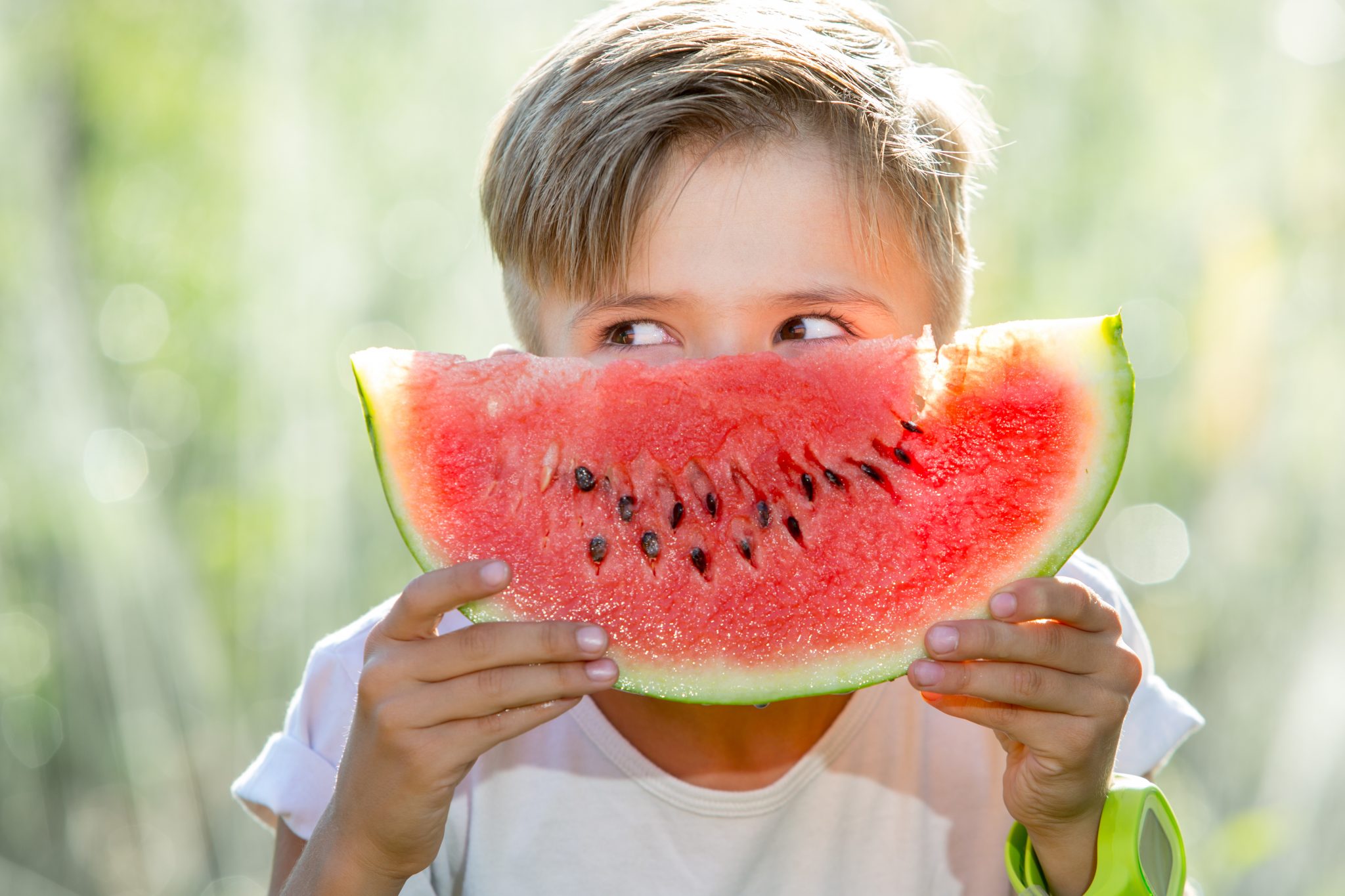
How to Keep Kids Cool in the Hot Summer
[vc_row][vc_column][vc_column_text]As a child, I was always suffering from heat strokes or heat fevers. Whenever I’d get sick, my aunt would say to my mom “your daughter has too much yang energy, it makes her especially susceptible to pathogenic summer heat”. The Chinese medicine babble didn’t mean much to me except that my play time got taken away and I was forced to drink gross herbal teas.
Now, as an acupuncturist and herbalist, I finally understand what my aunt meant. In Chinese medicine, children are seen as having more yang energy than yin. Yang energy is that fast moving, outward expanding force – similar to the spark that propels sprinters from the starting block. Yang is associated with the sun and warmth, and yin is just the opposite. Summer heat is a yang pathogen that can invade the body during the hazy and hot days. For children who have more yang than yin energy, that heat can result in more frequent and pronounced sun stroke attacks. The symptoms can include excessive sweating, extreme thirst, high fever, burning sensation, fever blisters, dryness of the lips and mouth, yellow and concentrated urine, heaviness, nausea, vomiting, diarrhea, and fainting spells. Fatigue, weakness, and chills can often follow a summer heat attack.
It is scientifically proven that children heat up almost five times faster than adults. This is because children have fewer sweat glands than adults and not enough body surface area to cool down their internal organs (Wendy, 2015). Exercise can also increase internal body temperature, as muscles in action produce 10 to 20 times more heat than muscles at rest. Combine these physical factors with a child’s constant desire to bounce around and inherent lack of mental judgement, and the result often leads to a child quickly overheating in the summer.
So what are some of the remedies and prevention methods for kids during the hot, hazy days of summer?
- First and foremost, educate your kids on the need to drink water!
- Make it a game for them! Every 15 minutes of play time equals 1 water break.
- Incorporate 2 to 4 cups of water for every hour they are active.
- Avoid having kids consume ice cold water since it has been proven to prevent sweating, and sweating is needed to help cool them down (Hutchinson, 2012).
- Add fun silicone bobbins (not frozen) or fruit into the water bottle in make it more fun.
- Change their outdoor times to the mornings when temperatures are lower than the peak afternoon temperatures.
- Educate them on a few key symptoms to look out for so they can notify an adult. Some good ones that are easily identifiable include dry mouth and excessive sweating.
- Walk through a scenario with them on what to do if they’re feeling faint: tell someone, sit down, find shade, grab a hold of something, or brace themselves. My aunt, for example, taught me to faint uphill which prevented me from tumbling down a few times.
- Dress them in cool, loose fitting clothing that breathes easily.
- Try frequent and quick baths to cool them down.
With hot summers and active kids, unfortunately the best prevention may not be enough. I fainted a total of four times one summer, even while under the eagle eyes of my doctor, aunt, grandma, babysitter, and older cousins (although I think the latter was more to blame). Just in case, here are some things you can do if your kid is suffering from a heat stroke:
- Get them out of the heat/sun/humidity
- Call 9-1-1 or go to a doctor immediately if there is either a loss of consciousness or any extreme symptoms
- Apply a cool wet towel to pressure points like the neck (especially the on the back side), groin area, and crooks of the elbows and knees.
- If they are alert, have them sip water slowly; if they drink too fast, they may become sick.
- Pinch the inside and outside of their heel (near the achilles) or under their nose to wake them up if they have fainted
- Have them take a room temperature bath
- Do not give them medicine for fever, as Tylenol and Ibuprofen do not reduce core body temperature, and giving medications to a child who is dehydrated may cause other health complications (Wendy, 2015)
For aftercare from a heat-induced incident, there are terrific children’s formulas to take if your child is out of immediate health risk but still suffering from the lingering effects of a heat stroke such as fever, digestive problems, fatigue, aches, and pains. Acupuncture can also help draw out some toxic heat from the body and help the digestive system mend itself. Some gentle food choices that can be used to combat the effects of a heat stroke include:
- Watermelon
- Mung beans: boil with water and light sugar or fruit, chill to room temperature and drink /eat. This is often a treat for Asian kids in the summer after playing outside in the heat. My family used to fight over who go more of the mung beans!
- Barley tea: you can find this in Asian grocery stores (especially Korean markets). Brew the tea and cool it down to room temperature. Don’t use this if your child is allergic to gluten.
May you and your kids have a healthy and fun summer!
References
Hutchinson, A. (2012). A hot drink cools you faster than a cold one – myth or reality? The Globe and Mail.
Wendy, S. S. (2015). How days: Why children are at particular risk. Seattle Children’s: Seattle Mama Doc. [/vc_column_text][/vc_column][/vc_row]


